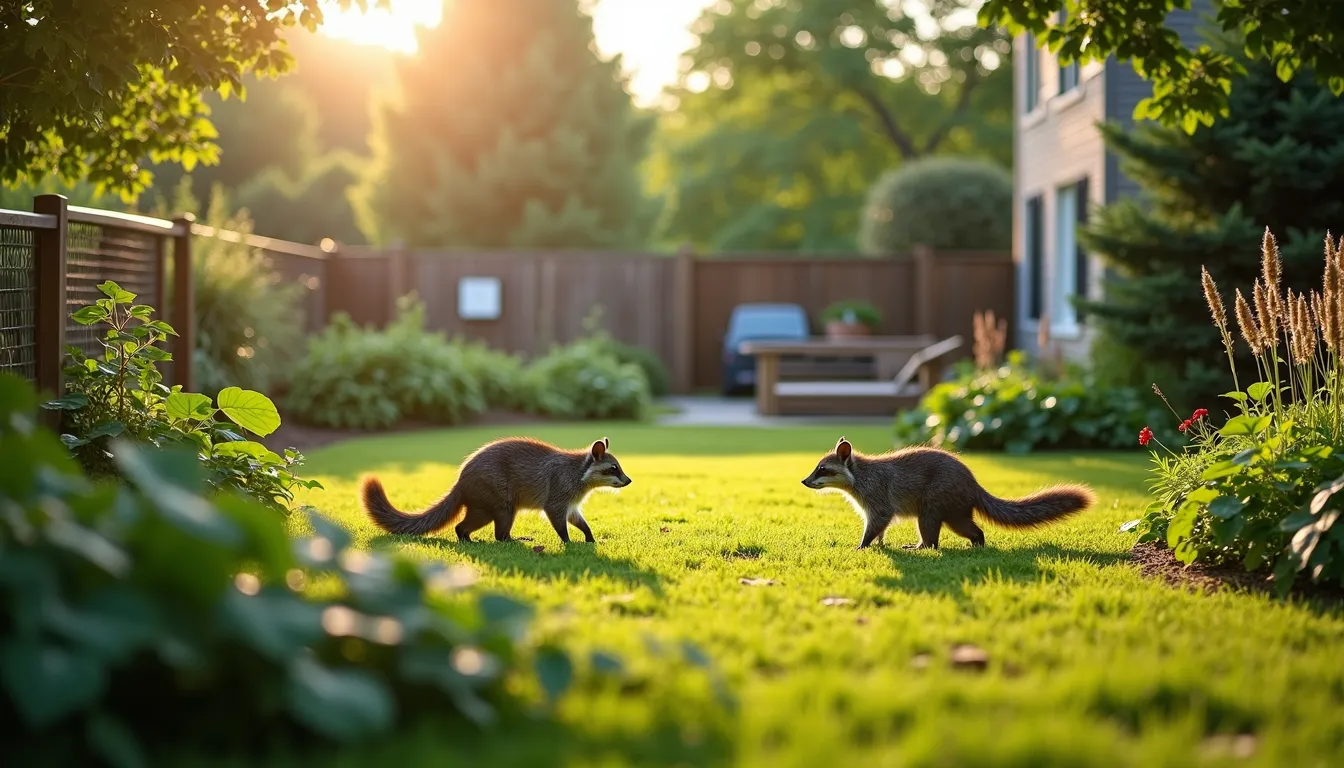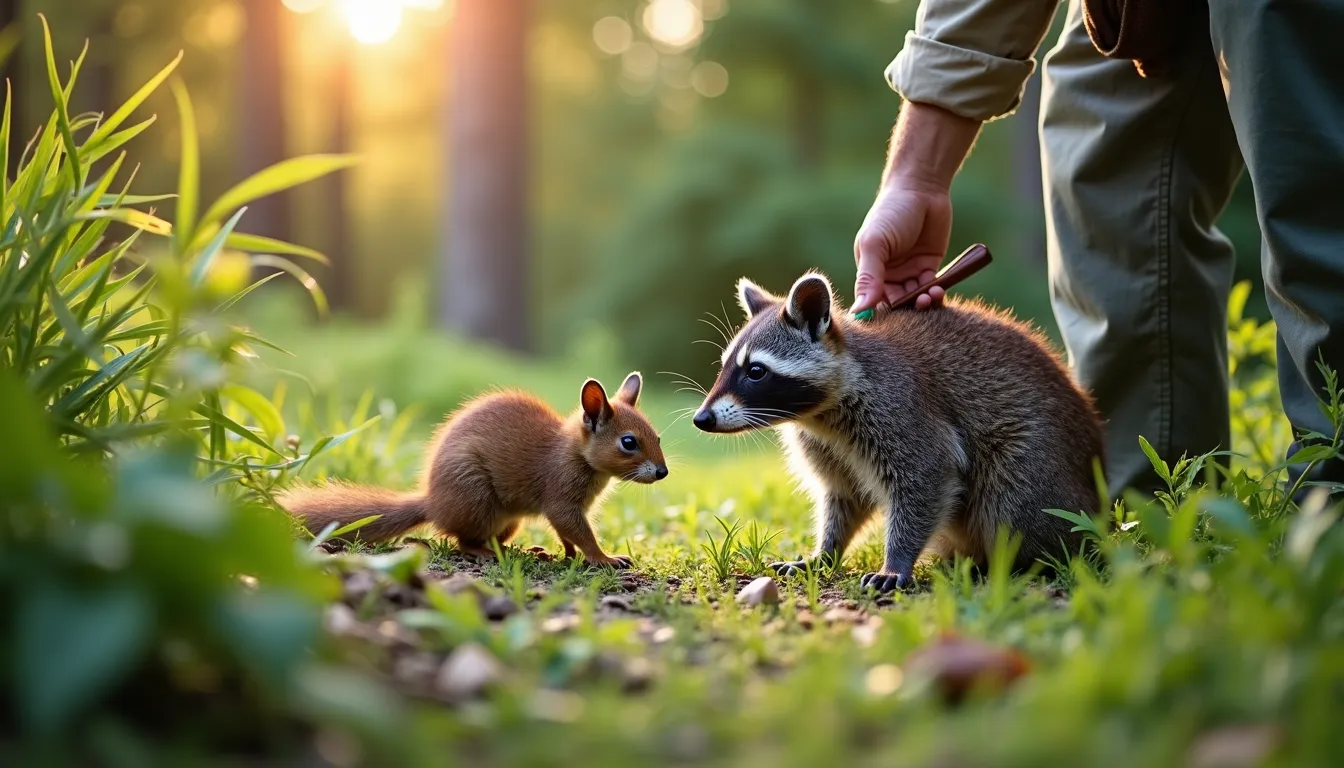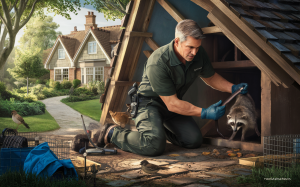Wildlife diseases common in Tennessee and how to protect your home are serious concerns for homeowners. These diseases, like rabies in raccoons and leptospirosis in rodents, can pose health risks to both people and pets. Understanding what these diseases are and how to prevent them is essential for keeping your family safe. In this article, we’ll dive into the most common wildlife diseases in Tennessee, their symptoms, and practical steps you can take to safeguard your home. Let’s ensure your living space remains a safe haven amidst the beautiful Tennessee wildlife!
Common Wildlife Diseases in Tennessee

Tennessee is home to many wonderful wildlife species, but some can carry dangerous diseases. Let’s look at a few of the common wildlife diseases in the state, like rabies, leptospirosis, and hantavirus.
Rabies and Its Impact on Local Animals
Rabies is a deadly virus that often affects bats and raccoons. If an infected animal bites another animal or a human, it can spread the disease. Symptoms include aggression, confusion, and difficulty walking. This disease is serious and can be fatal if not treated on time. Awareness is key to protecting both our wildlife and ourselves.
Leptospirosis and Hantavirus
Leptospirosis can come from contact with infected rodent droppings or urine. This disease can make people very sick. The hantavirus, spread by rodents, can lead to severe respiratory issues in humans. Knowing about these diseases helps you understand how to stay safe and protect your family.
The Impact of Wildlife on Human Health
It’s crucial to know how these wildlife diseases can be transmitted to humans. For example, when a raccoon digs through trash, it might leave behind waste that can spread leptospirosis. Staying aware of these risks helps prevent outbreaks.
Biodiversity plays a role too. A healthy mix of wildlife can help control diseases naturally. But if a species, like rodents, becomes too numerous, it can lead to more disease cases. By understanding these connections, we can keep ourselves and our homes safer from wildlife-related health risks.
Symptoms of Wildlife Diseases

Wildlife diseases can affect animals in Tennessee, and recognizing the symptoms early is very important. Common wildlife diseases include rabies, which is often seen in bats and raccoons. If you notice a wild animal acting strangely—like being overly aggressive or appearing sick—it’s crucial to keep your distance. These behaviors could mean the animal is infected.
Recognizing Symptoms Early
When I went hiking in one of our beautiful Tennessee caves, I saw a bat hanging upside down, but something seemed off. It wasn’t moving much and looked unwell. Later, I learned that these could be signs of white-nose syndrome, a disease affecting bats. Early detection like this can save entire populations of wildlife.
Early detection isn’t just for wildlife; it’s essential for our pets too. If your dog or cat plays outside and interacts with wildlife, keep an eye out for signs like sudden changes in behavior, lack of energy, or unusual spots on their skin. These could point to a wildlife disease affecting your pet.
The importance of early detection cannot be overstated. By recognizing these symptoms, you can help prevent the spread of diseases like rabies to other animals and even humans. Always contact a wildlife control or wildlife service expert if you suspect a problem. Remember, protecting our wildlife biodiversity is a team effort, and you can play a key role!
Effective Wildlife Control Measures

Wildlife can be fascinating, but when they invade our homes, they can bring dangers like diseases. In Tennessee, it’s important to manage these visitors effectively. Here are some practical steps to take:
Securing Entry Points
First, check your home for any gaps or holes. Raccoons and bats can squeeze through surprisingly small openings. Seal these areas with sturdy materials. For example, use metal mesh for vents and caulk for cracks around windows and doors. This makes it harder for wildlife to enter and helps keep your family safe from potential wildlife diseases.
Using Humane Repellents
You can also use humane repellents to keep animals away. Natural options include spraying a mixture of water and vinegar around your property. The smell is unappealing to many animals. You could also try planting strong-smelling herbs like mint or rosemary. These plants not only smell great but can also deter wildlife.
Safe Waste Disposal Practices
Proper waste disposal is crucial. Keep your garbage in sealed containers to avoid attracting animals. Raccoons are notorious for rummaging through trash. If you have pets, don’t leave food out overnight. This will help keep unwanted guests at bay.
Creating a Wildlife-Safe Home Environment Managing your yard can also discourage wildlife.
Habitat Management and Landscaping
Begin by trimming overgrown bushes and clearing away debris. This removes hiding spots for animals. Use native plants that are less appealing to wildlife. For example, some plants attract fewer insects, which in turn attracts fewer animals.
By following these steps, you can enjoy your beautiful home while keeping wildlife encounters to a minimum. Protecting your family and property from wildlife diseases is just a few thoughtful choices away!
Legal Considerations for Wildlife Removal

When dealing with wildlife in Tennessee, it’s crucial to understand the laws and regulations for wildlife control. Different animals, such as raccoons, bats, and even rodents, have specific rules for removal. Always check with the Tennessee Wildlife Resources Agency to ensure you’re following the law. For example, if you find a sick animal, it may carry diseases like rabies, and handling it can put you at risk.
When to Seek Professional Help
If you spot a wild animal in your home, it’s often best to call a wildlife service. Professionals have the tools and training to handle these situations safely. They are familiar with the local wildlife species and can remove them without harming them or breaking any laws. It’s important to remember that some animals play a role in our ecosystem, and removing them should be done ethically.
Stories of Successful Wildlife Removal
Consider the story of the Smith family in Nashville. They discovered a family of bats in their attic. Instead of trying to handle the situation themselves, they called a local wildlife control expert. The professional safely removed the bats and ensured they were relocated to a nearby cave. The Smiths learned the importance of working with wildlife professionals and protecting their home without putting themselves or the animals in danger.
Collaborating with professionals not only protects your home but also helps maintain wildlife biodiversity in the area, ensuring a safer environment for both humans and animals.
Resources for Wildlife Disease Prevention

Local and State Resources
To keep your home and community safe from wildlife diseases, it’s important to know your resources. In Tennessee, the Department of Wildlife Resources is your go-to for information on local wildlife management. They provide guidance on dealing with common animals like raccoons, bats, and other wildlife species that might carry diseases such as rabies. You can visit their website for helpful resources or contact them directly for questions: – Tennessee Department of Wildlife Resources – Phone: [Insert Phone Number] – Website: [Insert Website Link]
You can also reach out to your local wildlife services and health departments. They often have programs and specialists who can help with wildlife control and disease prevention in your area. Keeping their contact information handy can make a big difference.
Staying Informed and Engaged
It’s great to stay informed about wildlife and how to manage potential hazards. Get involved in community programs or workshops focused on wildlife education. These events can teach you about tracking animal populations and recognizing symptoms of diseases in wildlife.
For instance, local initiatives may offer tracking kits that help you monitor wildlife in your area, making it easier to spot any potential problems early. Participating in these programs not only keeps your family safe but also helps protect Tennessee’s biodiversity. Let’s work together to ensure our wildlife coexists peacefully with our homes!
Safeguard Your Home from Wildlife Threats

As a homeowner in Tennessee, I understand the concerns that come with our beautiful yet unpredictable wildlife. By staying informed about wildlife diseases like rabies and leptospirosis, we can take proactive steps to protect our families and properties. Remember, if you encounter unwanted wildlife or suspect a disease, don’t hesitate to reach out for help.
Call Birdman’s wildlife removal services at (629) 777-5949 for prompt and humane assistance. Together, we can ensure a safe and healthy coexistence with the amazing creatures that share our environment. Let’s take action today!
